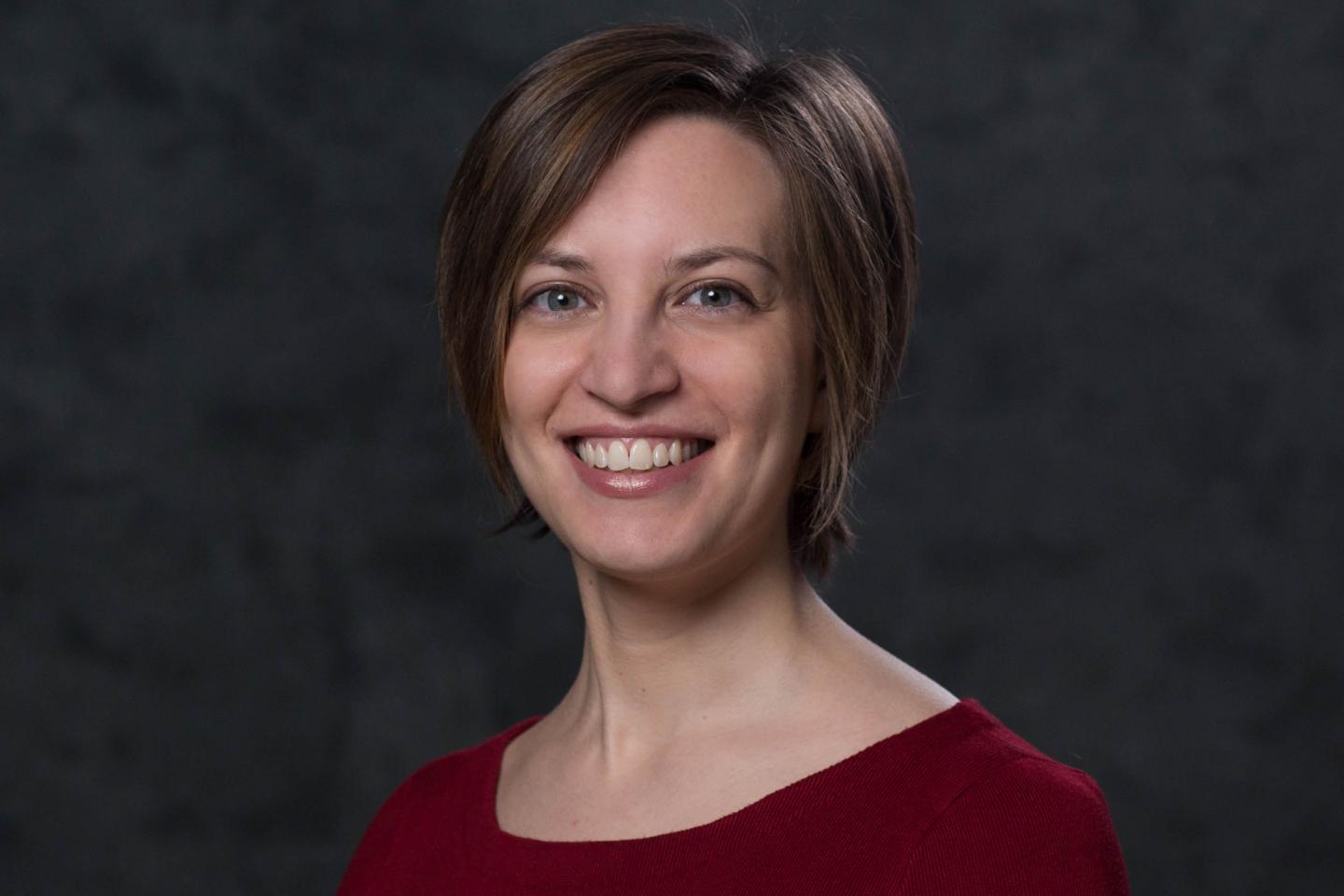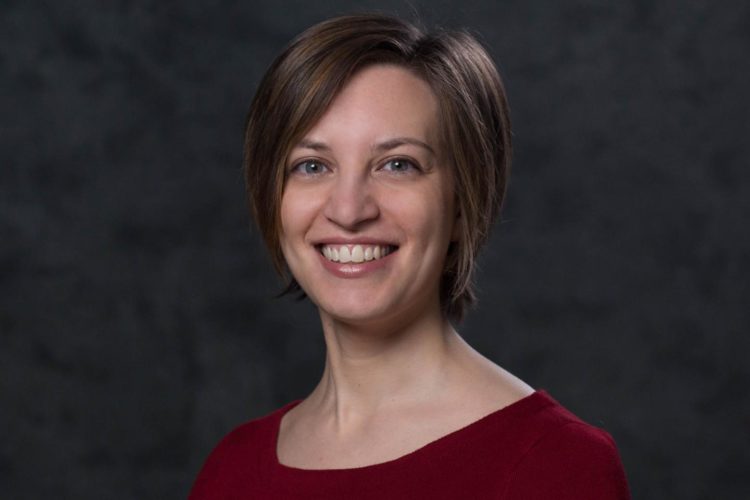Physicist Esther Wertz explores potential configuration of device to hold and release photons

Credit: Rensselaer Polytechnic Institute
TROY, N.Y. — As a candidate for the qubits — the basic units of quantum information — in quantum computers, photons have one major advantage over the electrons used in all current devices. Unlike electrons, photons, the smallest possible quantity of light, do not easily interact with their surroundings. So, unlike its electron-based counterpart, a photonic quantum device would not need to be cooled to nearly absolute zero to limit unwanted interactions. But such a device does not exist — yet.
To advance the field of photonic quantum devices, physicist Esther Wertz has been awarded a National Science Foundation Faculty Early Career Development Program (CAREER) award to investigate nanometer-scale metal structures that will control light at the quantum limit, one photon at a time. Her work will contribute to the creation of a single photon transistor.
“I’m interested in understanding how quantum states — either single photons or qubits — interact with components of what, in the future, might be a photonic quantum circuit,” said Wertz, an assistant professor of physics, applied physics, and astronomy at Rensselaer Polytechnic Institute. “My work is aimed at manipulating quantum states without destroying superposition.”
Quantum computers exploit quantum-specific properties of particles, such as superposition and entanglement, giving them an exponential advantage over classical computers. But to harness these properties in a photonic quantum circuit, we must be able to electromagnetically hold and release a photon, much as a classical transistor holds and releases a current of electrons.
A photon can be held in a device known as an optical cavity, and Wertz is interested in exploring a type of optical cavity which relies on plasmonic nanoparticles or “plasmons,” quasiparticles arising from the collective motion of electrons on the surface of a metal.
“Plasmonic nanoparticles can confine light to very small volumes, smaller than the diffraction limit of light, and because the plasmons can confine the field to much smaller volumes than other cavities, you can get very strong interactions between light and matter within them,” Wertz said.
Within the plasmonic cavity, Wertz will place a single emitter, a material capable of emitting and absorbing one photon.
Under highly specific conditions, it is possible for the photon to be alternately absorbed and re-emitted, a reversible exchange of energy that gives rise to a half-light half-matter particle called a polariton.
The polariton is what allows the single photon transistor to work. If the emitter is coupled to the cavity strongly enough to form a polariton, the polariton will be capable of absorbing one photon. At that point, Wertz would have a device capable of holding a photon, or — if it is already holding a photon — allowing a photon to pass.
To understand how the structure of the cavity and the position of the emitter influence the efficiency with which the emitter may send out photons, Wertz will use plasmonic optical trapping to create a cavity into which she can repeatedly place and remove the single emitter within the gap, testing different positions and outcomes.
To investigate the physics of the emitter as coupled with the nanocavity, she will use a combination of single-molecule super-resolution imaging and fluorescence lifetime imaging, developing techniques specific to her application as part of her research.
“Winning a CAREER award is an honor that recognizes both a researcher’s vision and her ability to realize that vision. It is no surprise that Esther Wertz has been chosen for this honor,” said Curt Breneman, dean of the School of Science. “Esther’s work involves a systematic approach to controlling photons that is certain to advance the frontier of photonic quantum transistor research. We congratulate her and are proud to have her as a colleague.”
###
About Rensselaer Polytechnic Institute
Founded in 1824, Rensselaer Polytechnic Institute is America’s first technological research university. Rensselaer encompasses five schools, 32 research centers, more than 145 academic programs, and a dynamic community made up of more than 7,900 students and over 100,000 living alumni. Rensselaer faculty and alumni include more than 145 National Academy members, six members of the National Inventors Hall of Fame, six National Medal of Technology winners, five National Medal of Science winners, and a Nobel Prize winner in Physics. With nearly 200 years of experience advancing scientific and technological knowledge, Rensselaer remains focused on addressing global challenges with a spirit of ingenuity and collaboration. To learn more, please visit http://www.
Media Contact
Reeve Hamilton
[email protected]
Original Source
https:/





